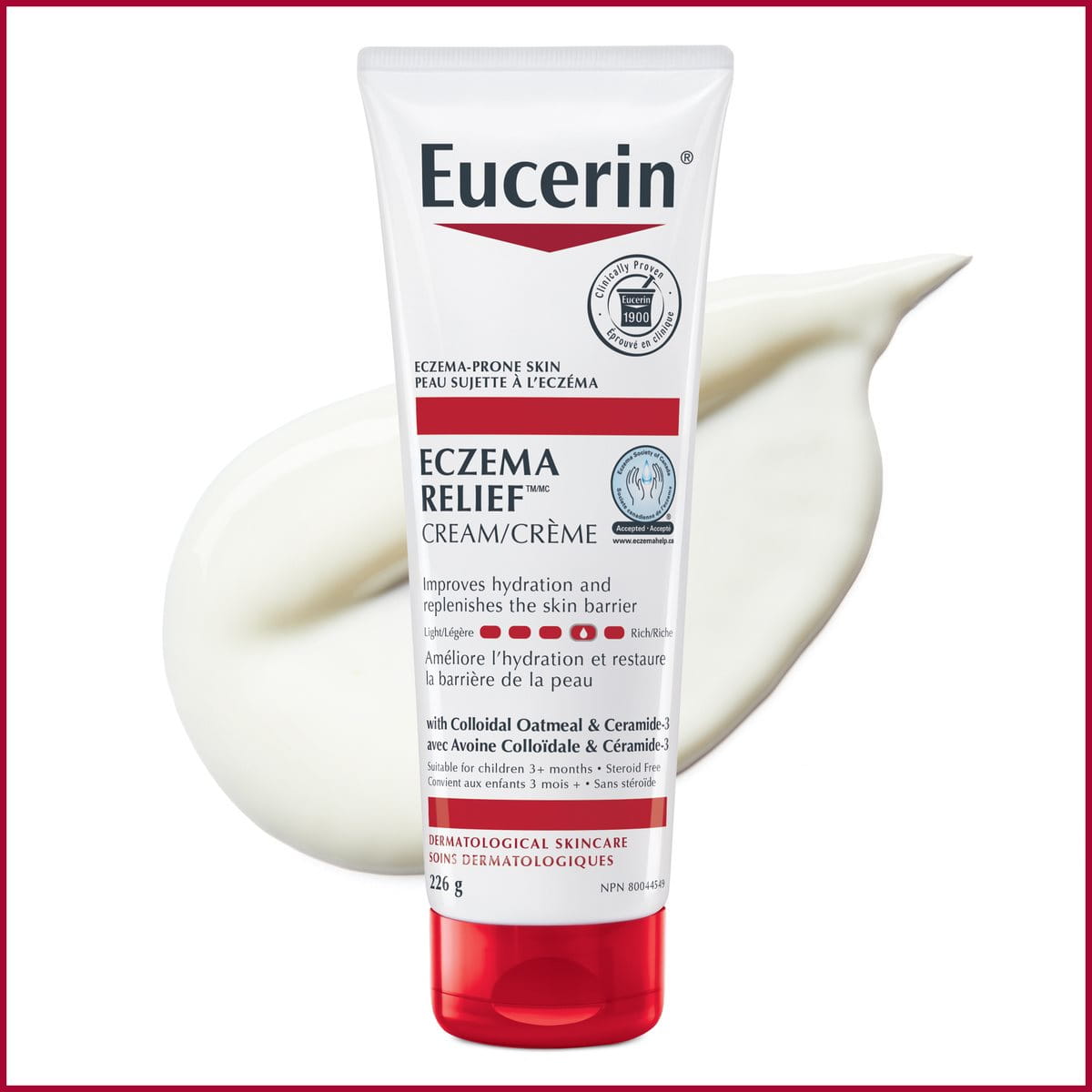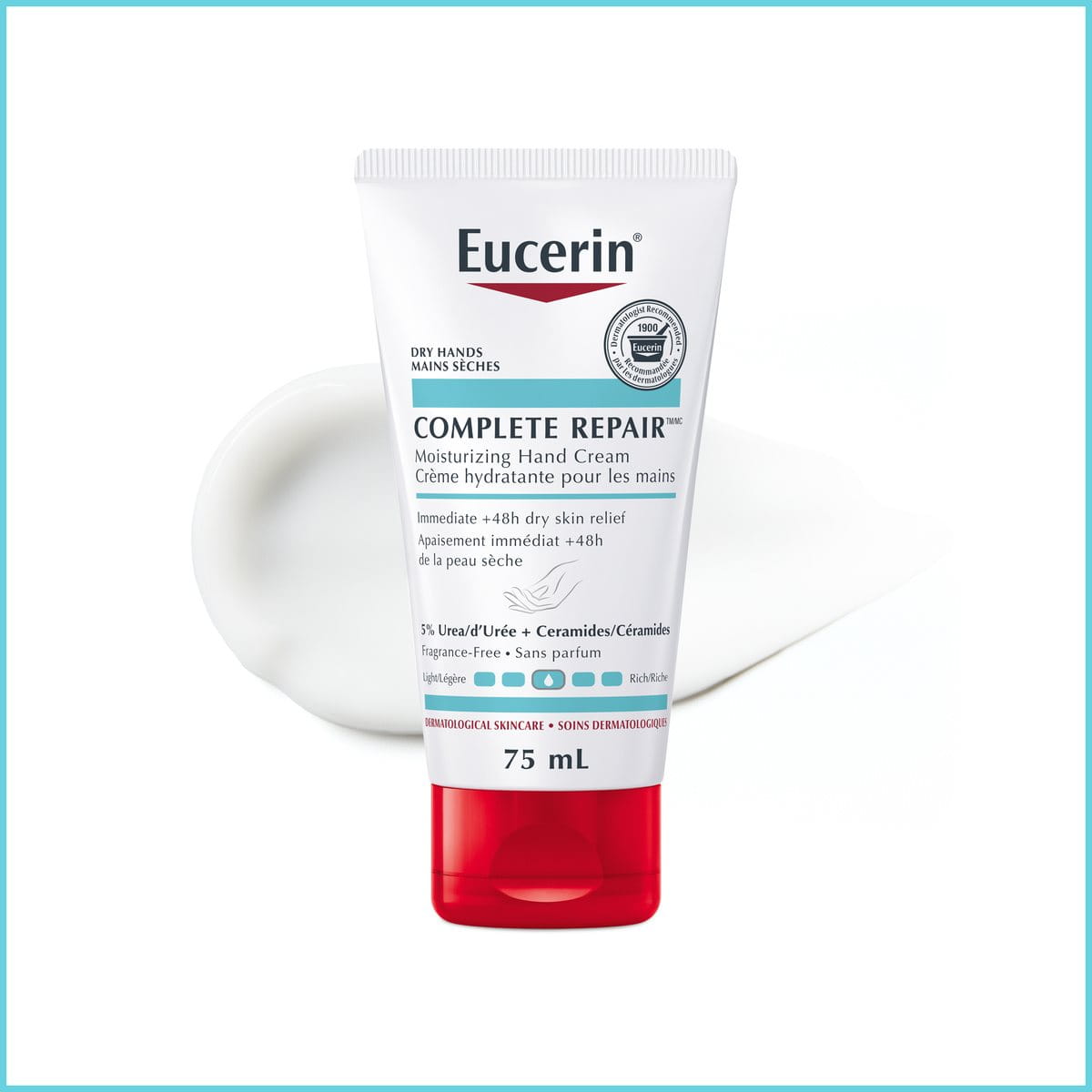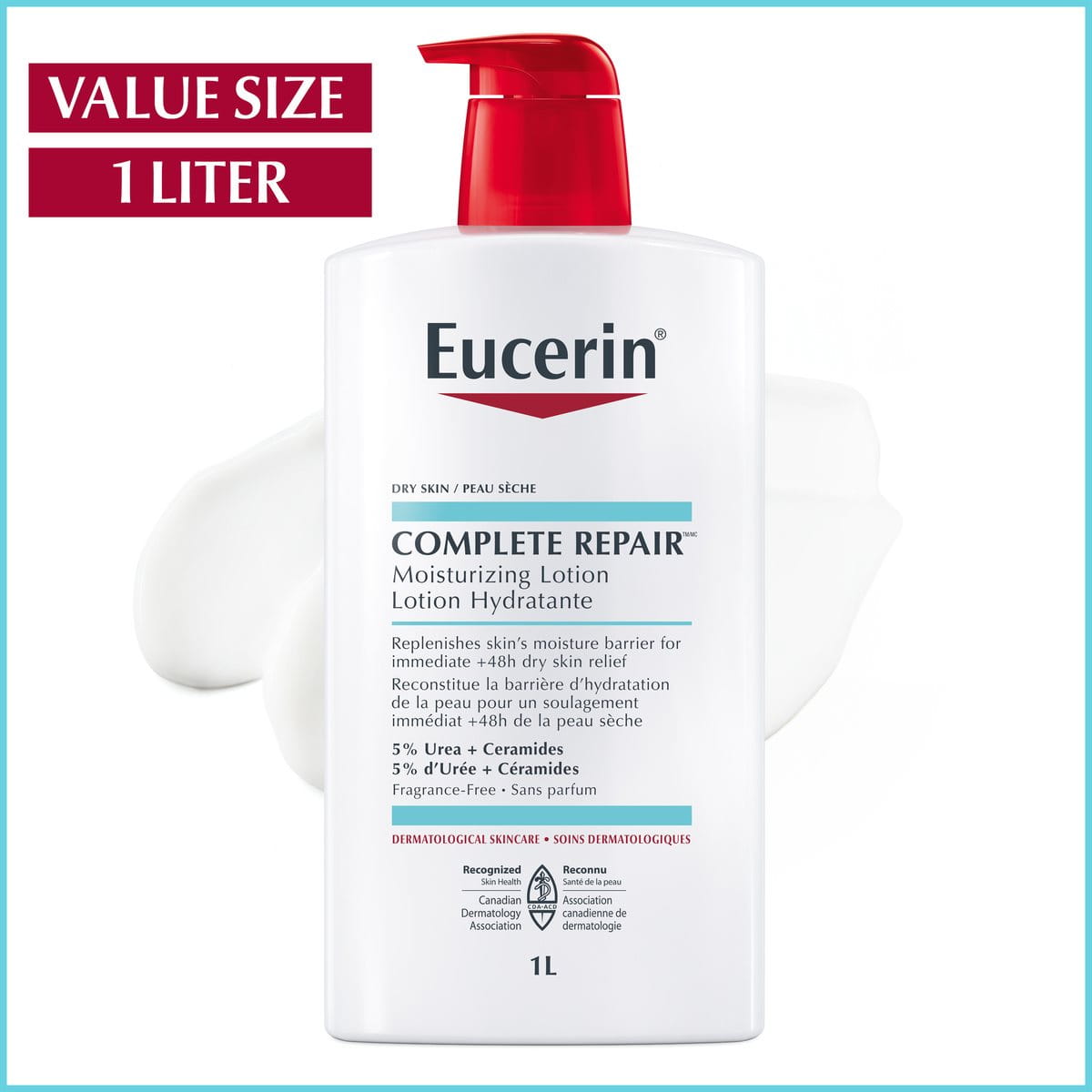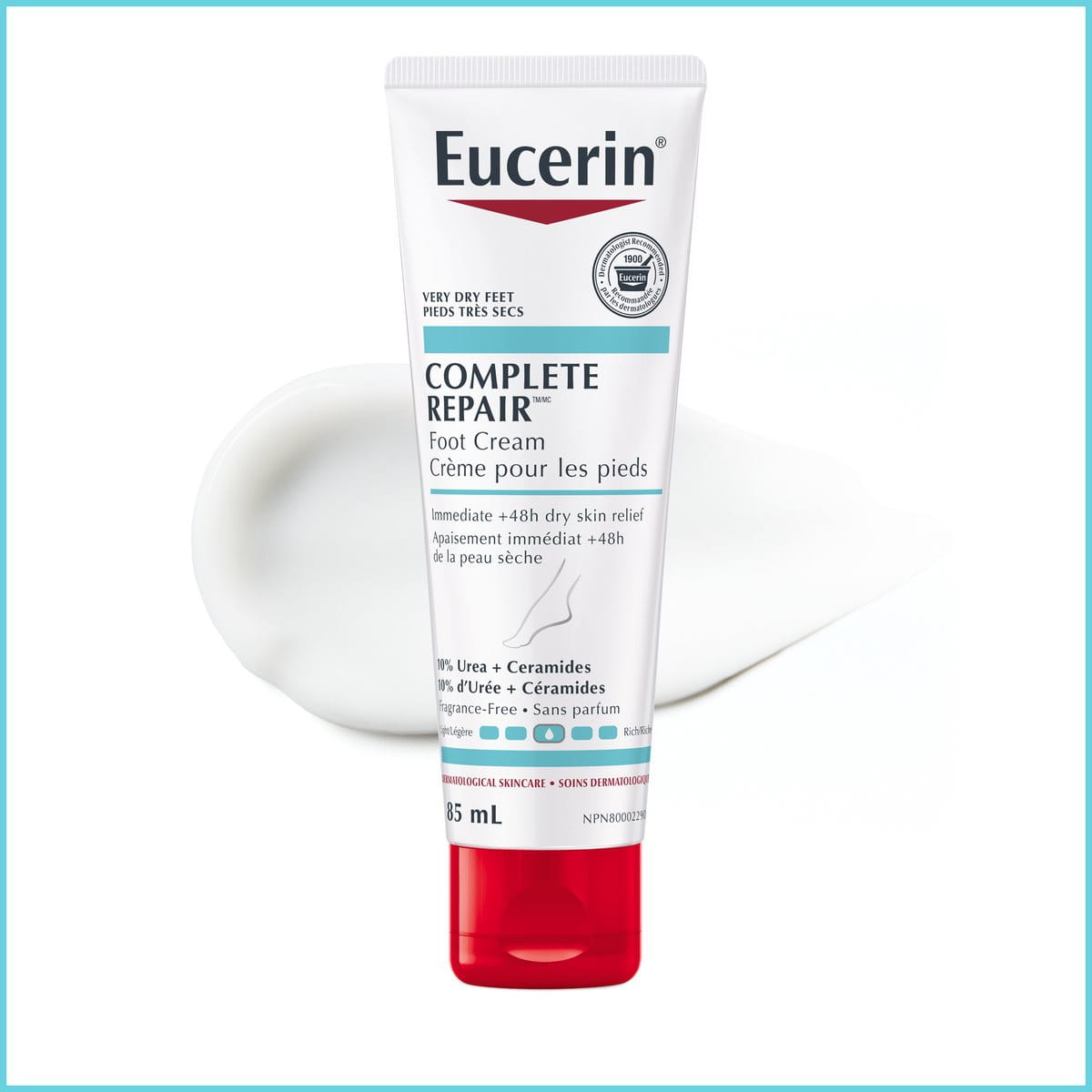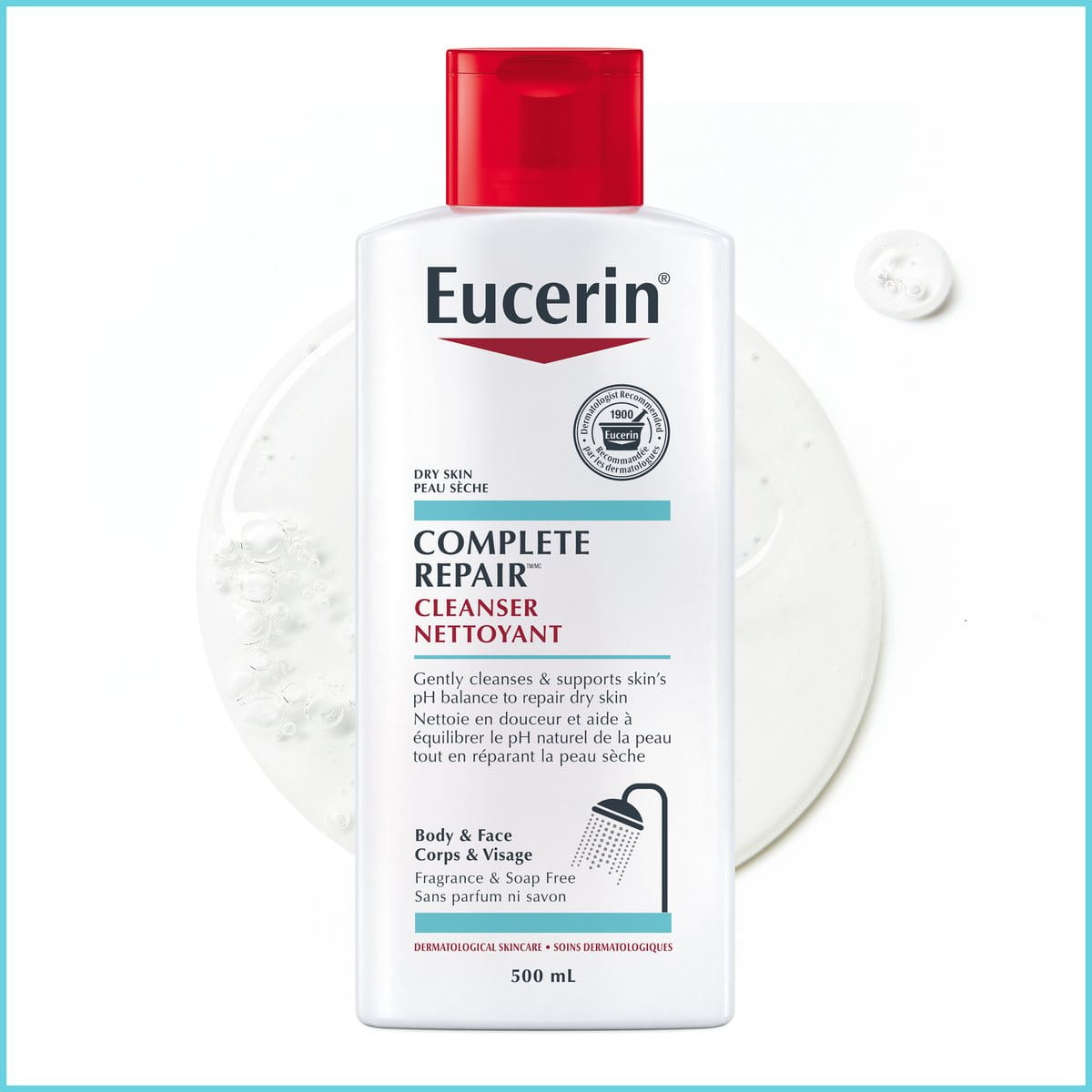Dry skin on hands is common and normally is not harmful but it can be irritating, especially for extremely dry, cracked hands that may be itchy or chapped. In most cases, dry hands are caused by environmental factors such as weather conditions or exposure to chemicals which could dry your skin out.
Washing your hands too much or more than normal can also cause sudden dry skin on the hands, but there are some medical conditions which can cause extremely dry hands too. In this article, we will outline the signs and symptoms of dry hands, potential causes and how to moisturize dry skin on the hands.
Why is caring for our hands so important?
We use our hands every day, they are one of the most used parts of the body. All this hard work puts the skin on our hands under pressure.
Our hands are also rarely covered and are directly exposed to harmful external irritants such as cold, heat, frequent hand washing, pollution and dirt. These can all weaken the skin’s natural barrier and cause the skin on our hands to dry out, resulting in dry skin patches forming on our hands.
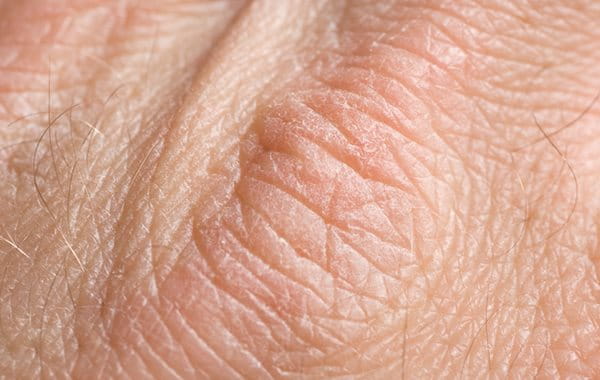
Hands have a different skin structure to other parts of our body which helps them perform their key function in movement and motion control.
The skin on the palms and balls of the fingers and thumbs:
- is rich in fatty and connective tissue (such as elastin and collagen)
- has a high density of sweat glands but very few sebaceous glands
The skin on the backs of the hands:
- has hardly any fatty tissue
- is especially thin and sensitive
- has few sebaceous glands
These qualities help to make our hands nimble and yet able to grip and lift heavy objects, but they also make the skin on our hands prone to drying out.
The sebaceous glands produce sebum, which provides the skin with lipids (or fats) and moisture-binding components. With fewer sebaceous glands, our hands are therefore more prone to dryness. To prevent dry skin, looking after your hands is essential.
Signs and symptoms of dry hands
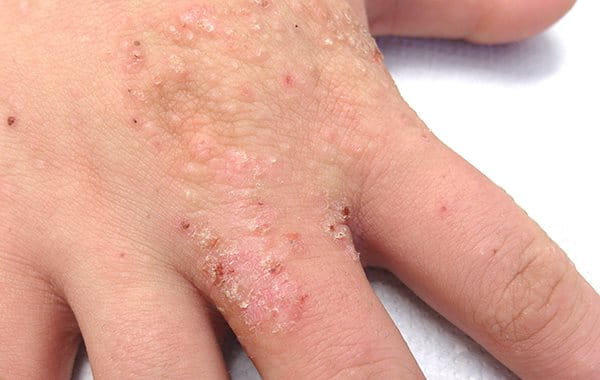
Signs and symptoms of dry hands vary depending on the severity and cause of the dryness:
- Mild dry hands: Dry skin patches on the hands, with the skin feeling parched, tight and sensitive. Your hands might appear red or feel itchy due to their heightened sensitivity due to dryness. Dry skin on the hands most commonly affects the knuckles and wrists but can affect the palm, back of the hand and fingers.
- Severe dry hands: In more severe cases, extremely dry hands can feel rough and itchy, with skin that is chapped, cracked and even bleeding with scaly, tight patches.
Underlying conditions such as atopic dermatitis can cause sudden dry skin on hands, causing the skin to become rough, itchy and inflamed.
Why are my hands so dry?
There can be both external causes and internal triggers which can cause dry skin on the hands.
External influences that can cause dry hands
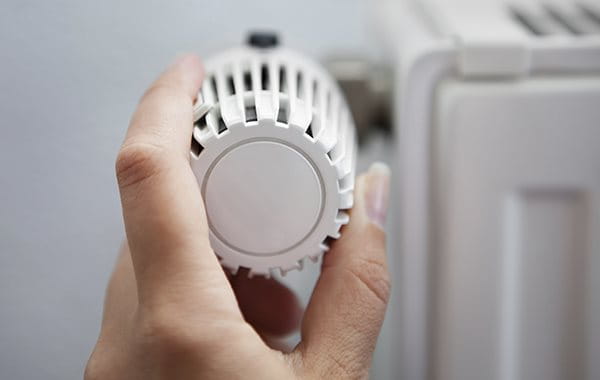
- Environmental factors: Harsh weather conditions, especially in winter when temperatures get colder can cause dry skin as the body struggles to hold onto moisture as effectively. Fluctuations in temperature such as moving from hot to cold within a short period of time can also cause your hands to dry out.
- Dry air: Dry air, both hot and cold, can leave your hands dehydrated and dried out. This is particularly common in colder months as winter causes cold dry air and declining humidity levels which can cause skin to become dry and itchy. Warm dry air from central heating and indoor dry air from air conditioning can also cause your hands to suddenly lose moisture.
- Washing your hands too much: Frequent hand washing, using hand sanitizer multiple times a day and exposing your hands to hot water too often (such as when you wash the dishes or take showers) can cause your skin to become dry and chapped.
- UV light (which causes skin to age prematurely)
- Inappropriate skincare: Using products that do not support your skin’s natural pH levels can damage the skin’s protective barrier, causing a loss of moisture and reduced ability in your skin to hold onto hydration.
- Mechanical irritation (i.e. the abrasion of the outermost skin layer): Sometimes your hands can become dry as a result of being worn down by mechanical equipment as the skin will be rubbed and scraped. This will cause friction and pressure on the skin which can result in dry patches developing. Some workers such as those involved in craft trades are particularly susceptible to this kind of skin damage.
- Chemicals: A lot of products such as washing up liquid, hand wash and laundry detergent can contain harsh chemicals which can irritate your skin. This can result in damage to your skin’s natural barrier, making it harder for your hands to keep in their natural moisture.
Internal triggers that can cause dry hands
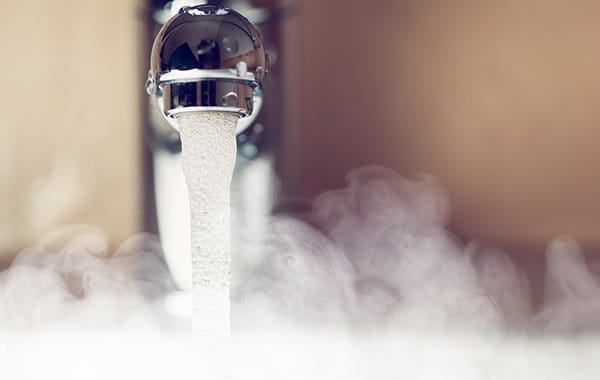
- Diet: An unbalanced diet and a lack of fluid intake can cause dry, flaky skin.
- Alcohol: Alcohol is diuretic, meaning that it dehydrates your body which can cause your skin to look and feel drier and less plump.
- Nicotine: Nicotine impacts the immune system, skin inflammation and skin cell growth, all of which can contribute to the development of dry skin conditions such as psoriasis. Learn more about psoriasis on the hands.
- Stress: An increase in stress causes more adrenaline to be produced in our bodies, resulting in us sweating more. This activates the eccrine glands (the sweat glands) which cause your body to become dehydrated as you’re losing more water faster. The body in response will try to cool itself down, but if you’re not replenishing your body with water your skin can dry out as a result. Stress can also trigger flare ups for conditions such as eczema and psoriasis.
- Aging Skin: As part of the skin ageing process as we get older our skin generally becomes drier and less elastic. Our skin’s barrier function also becomes weakened, causing a loss of moisture in the skin.
Other causes of dry hands
Dry hands can also accompany other diseases and conditions such as:
- Atopic dermatitis
- Diabetes
- Psoriasis
- Ichthyosis
- Allergies
- A thyroid disorder
If you are unsure about the cause of your dry hands speak to a dermatologist or doctor.
Dry hand treatment
Cover your hands

Keeping your hands covered, especially in cold temperatures and windy weather, will help to preserve the moisture in your skin. By wearing gloves outside you will help to prevent dry, itchy skin on your hands developing.
Limit water exposure
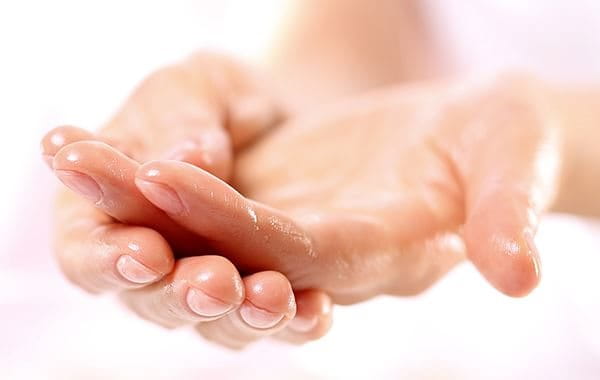
Frequently putting your hands in water, especially hot water such as during baths, showers or washing the dishes, will dry out your hands and cause irritation. Limit your water exposure by keeping baths and showers short and only bathe once a day. By keeping the temperature of your showers and baths lukewarm instead of hot you can reduce the risk of your skin being dried out.
When washing dishes, wear rubber gloves to avoid immersing your hands in hot, soapy water and protect your skin from harsh cleaning products which could cause irritation.
Wash hands in lukewarm water

If your dry hands are being caused by washing them too much or using hand sanitizer, you can help to treat dry skin by trying to wash your hands in lukewarm water only. Hot water can dry out your skin and worse conditions such as eczema. You should also use mild hand soap that supports your skin’s natural pH levels and restores moisture to the skin.
Dry your hands carefully
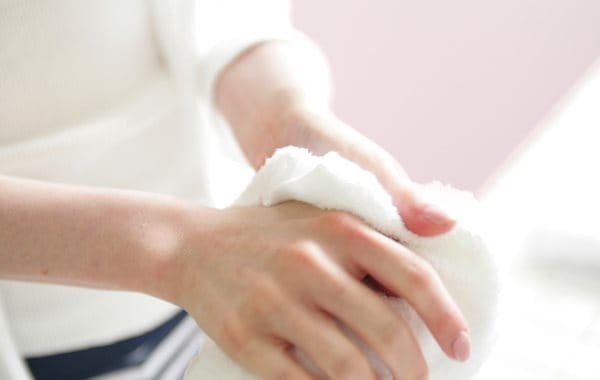
After washing your hands, it’s essential for soft skin to dry your hands carefully. Leftover water will evaporate and further dry out your hands. Make sure to fully dry your hands after washing, including in between your fingers. It’s better to pat your skin dry than to rub it as this is gentler on your skin; rubbing creates friction on your skin which can cause irritation.
Moisturize your hands often

If your hands are sensitive and rough it’s important to use a moisturizing care product regularly after hand washing – especially if you work in damp conditions or are in regular contact with dirt, lubricants and chemicals. If working conditions are the cause of your dry hands, consider carrying hand cream for dry hands to apply throughout the day.
Other tips for dry hands include moisturizing your hands before going to bed and wearing fine cotton gloves overnight so that the dry hand cream can be fully absorbed.
Hand Cream for dry hands
For dry and very dry hands we recommend the Eucerin Complete Repair Moisturizing Hand Cream. Made with 5% Urea and Ceramides, this cream locks in moisture and strengthens the skin's natural barrier for hands that look and feel softer and smoother for 48 hours.
Keep your hand cream next to the wash basin – at home and at work – to remind you to use it. And apply cream immediately after washing your hands as moist skin is particularly good at absorbing the ingredients.
If you notice your skin doesn't improve after making these changes or are concerned about dry hands, seek the advice of a doctor or dermatologist for further advice.
The information provided herein is not intended to be medical advice. Nor is it intended to treat the underlying skin disease or condition. The information is provided solely to:
- Moisturize, soften and smooth dry skin
- Improve the appearance of the skin
- Achieve healthier-looking skin
Our brand values

We deliver a holistic dermo-cosmetic approach to protect your skin, keep it healthy and radiant.

For over 100 years, we have dedicated ourselves to researching and innovating in the field of skin science. We believe in creating active ingredients and soothing formulas with high tolerability that work to help you live your life better each day.

We work together with leading dermatologist and pharmacist partners around the world to create innovative and effective skincare products they can trust and recommend.
